#computer history
Text

4K notes
·
View notes
Text
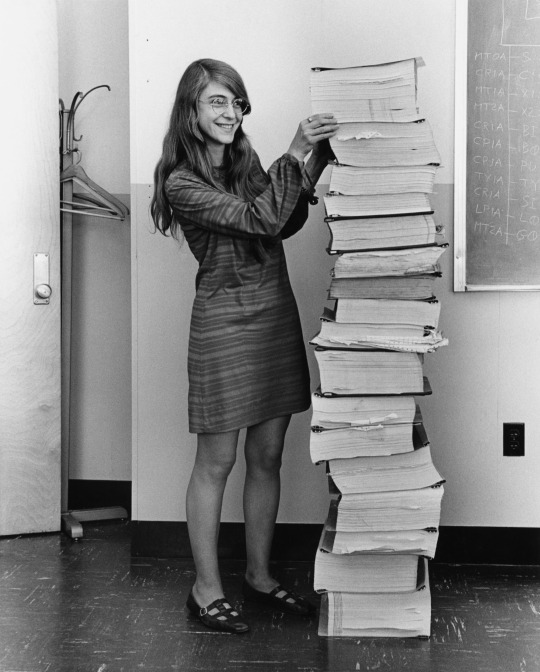
Margaret Hamilton, Director of the Apollo project Software Engineering Division, with a stack of papers containing the code to the Apollo Guidance Computer navigation software. The software that on this day, in 1969, guided Neil Armstrong and Buzz Aldrin when they landed on the Moon.
3K notes
·
View notes
Text

1K notes
·
View notes
Text

Woman using Beckman/SDS Integrated Computer System. 1964.
Science History Institute
632 notes
·
View notes
Text
Sam Siam: FurryMuck Land (Zine, 1993)
A zine about a text-based furry MMO that continues to this day. You can read it here.

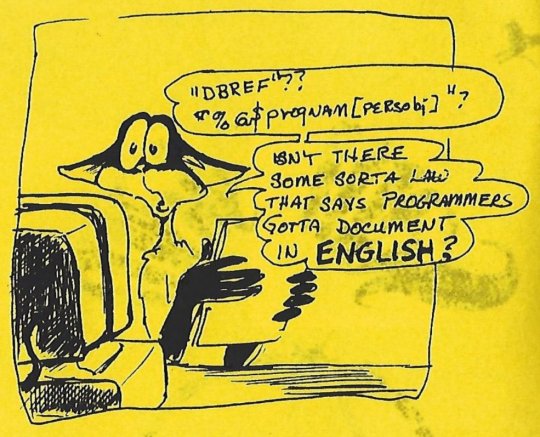
#internet archive#zine#zines#furry#furries#anthro#furry fandom#furry fandom history#furry history#muck#mu*#text games#text based game#internet history#old internet#computing history#computer history#1993#1990s#90s
406 notes
·
View notes
Text
fun fact: in the UK, they used JANET Name Registration Scheme (NRS) through the 80s and early 90s, instead of the Domain Name System (DNS), which is what the internet works now. This is basically the same as how domain names work today... except they were BACKWARDS.
NRS started with the top level domain (TLD), then the domain, then any subdomains.
So if the UK has stuck with their old naming scheme and it had caught on instead of the american DNS, you'd be reading this on com.tumblr.www
177 notes
·
View notes
Note
What is the appeal of vintage computers to you? Is it the vintage video games or is it the programs? If so, what kind of programs do you like to run on them?
Fair warning, we're talking about a subject I've been passionate about for most of my life, so this will take a minute. The answer ties into how I discovered the hobby, so we'll start with a few highlights:
I played old video games starting when I was 9 or 10.
I became fascinated with older icons buried within Windows.
Tried to play my first video game (War Eagles) again at age 11, learned about the hardware and software requirements being way different than anything I had available (a Pentium III-era Celeron running Windows ME)
I was given a Commodore 1541 by a family friend at age ~12.
Watched a documentary about the history of computers that filled in the gaps between vague mentions of ENIAC and punch cards, and DOS/Windows machines (age 13).
Read through OLD-COMPUTERS.COM for the entire summer immediately after that.
Got my first Commodore 64 at age 14.
I mostly fell into the hobby because I wanted to play old video games, but ended up not finding a ton of stuff that I really wanted to play. Instead, the process of using the machines, trying the operating system, appreciating the aesthetic, the functional design choices of the user experience became the greater experience. Oh, and fixing them.
Then I started installing operating systems on some DOS machines, or playing with odd peripherals, and customizing hardware to my needs. Oh, and programming! Mostly in BASIC on 8-bit hardware, but tinkering with what each computer could do is just so fascinating to me. I'm in control, and there isn't much of anything between what I write and the hardware carrying it out (especially on pre-Windows machines)! No obfuscation layers, run-times, .dlls, etc. Regardless of the system, BASIC is always a first choice for me. Nova, Ohio Scientific, Commodore, etc. I usually try to see what I can do with the available BASIC dialect and hardware. I also tend to find a game or two to try, especially modern homebrew Commodore games because that community is always creating something new. PC stuff I focus more on pre-made software of the era.
Just to name a few examples from a variety of systems: Tetris, terminal emulators, Command & Conquer titles, screen savers, War Eagles, Continuum, video capture software, Atomic Bomberman, demos, LEGO Island, Bejeweled clones, Commander Keen 1-3, lunar lander, Galaxian, sinewave displays, 2048, Pacman, mandelbrot sets, war dialers, paint -- I could keep going.
Changing gears, I find it funny how often elders outside of the vintage computing community would talk about the era I'm interested in (60s-early 90s). [spoken with Mr. Regular's old man voice]: "Well, computers used to be big as a room! And we used punch cards, and COBOL!" I didn't know what any of that meant, and when pressed for technical detail they couldn't tell you anything substantial. Nobody conveyed any specifics beyond "that's what we used!"
I noticed that gaps remained in how that history was presented to me, even when university-level computer science and history professors were engaged on the subject. I had to go find it on my own. History is written by the victors, yeah? When was the last time a mainstream documentary or period piece focused on someone other than an Apple or Microsoft employee? Well, in this case, you can sidestep all that and see it for yourself if you know where to look.
Experiencing the history first hand to really convey how computers got from point A to B all the way down to Z is enlightening. What's cool is that unlike so many other fields of history, it's near enough in time that we can engage with people who were there, or better yet, made it happen! Why do you think I like going to vintage computer festivals?
We can see the missteps, the dead-ends, the clunkiness, the forgotten gems and lost paradigms, hopefully with context of why it happened. For the things we can't find more information on, when or documentation and perspectives are limited, sometimes we have to resort to digital archeology, and reverse engineering practices to save data, fix machines, and learn how they work. The greater arc of computer history fascinates me, and I intend to learn about it by fixing and using the computers that exemplify it best, and sharing that passion with others who might enjoy it.
167 notes
·
View notes
Text
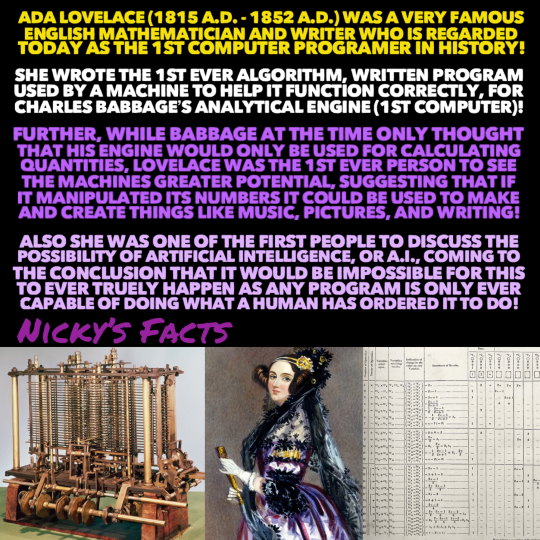
The feminine urge to program computers and write algorithms!
👩🏻💻💜👩🏾💻
#history#ada lovelace#computer programming#women in stem#computer#womens history#england#ai#technology#historical figures#computer history#victorian age#just girly things#femininity#london#soft girl#girl power#english history#women empowerment#historical women#girly things#girl thoughts#role model#artificial intelligence#girlboss#technology history#algorithm#nickys facts
207 notes
·
View notes
Text
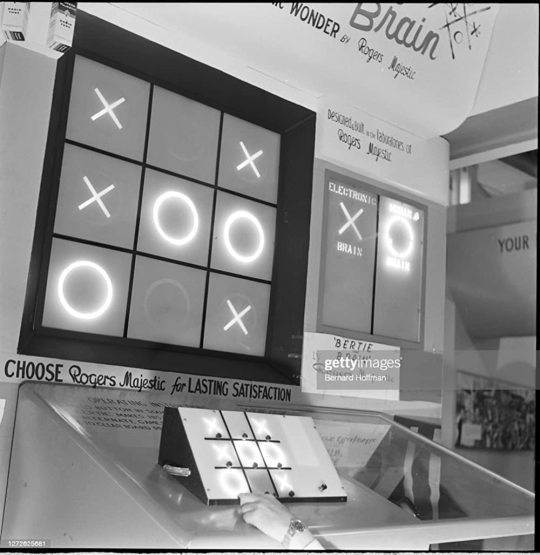

"Bertie the Brain", an exhibit in the 1950 Canadian National Exposition allowed visitors to play against a computer AI in a game of tic-tac-toe. Most likely the first time any of them had actually seen or interacted directly with a computer.
427 notes
·
View notes
Text
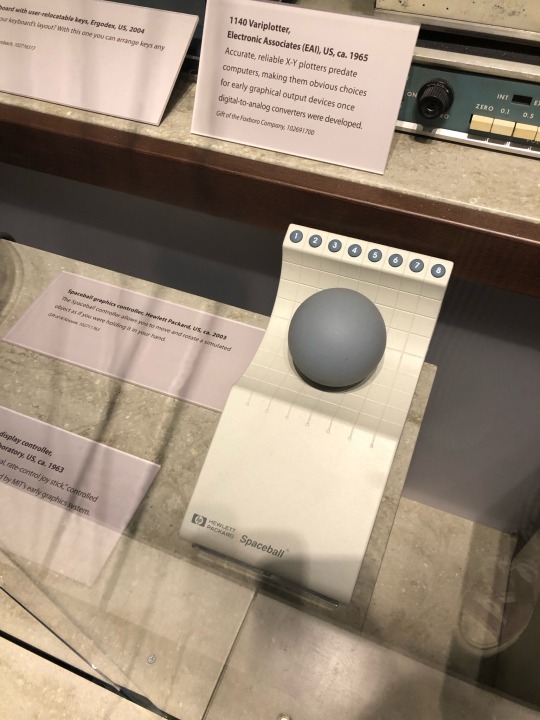

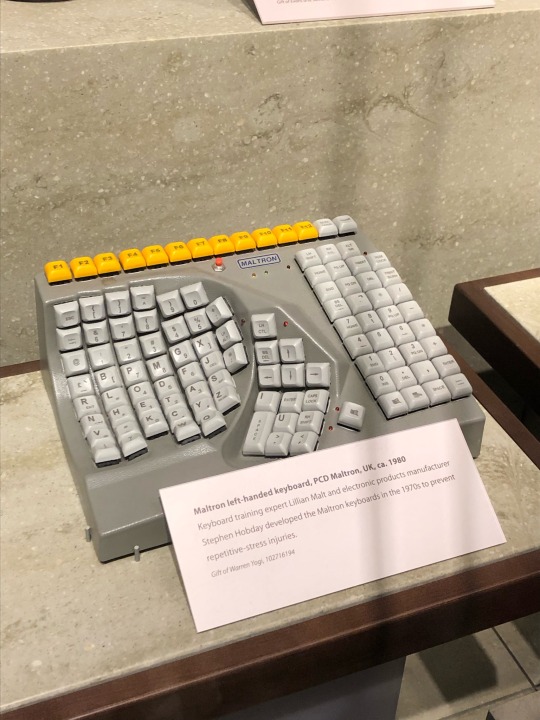
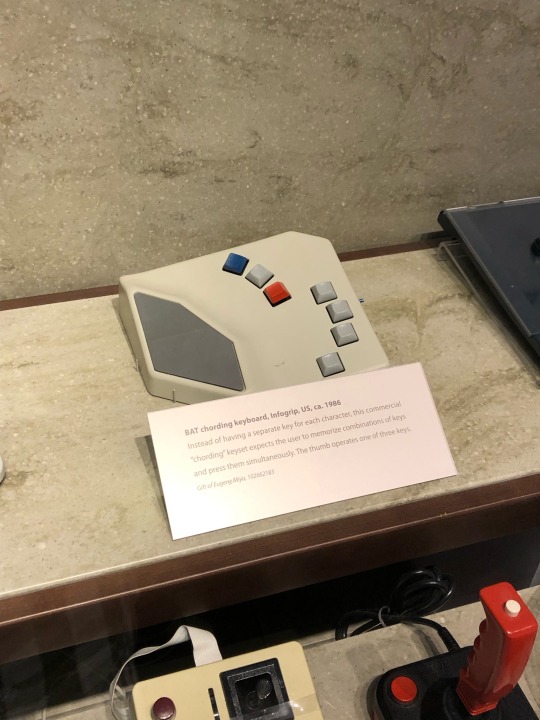
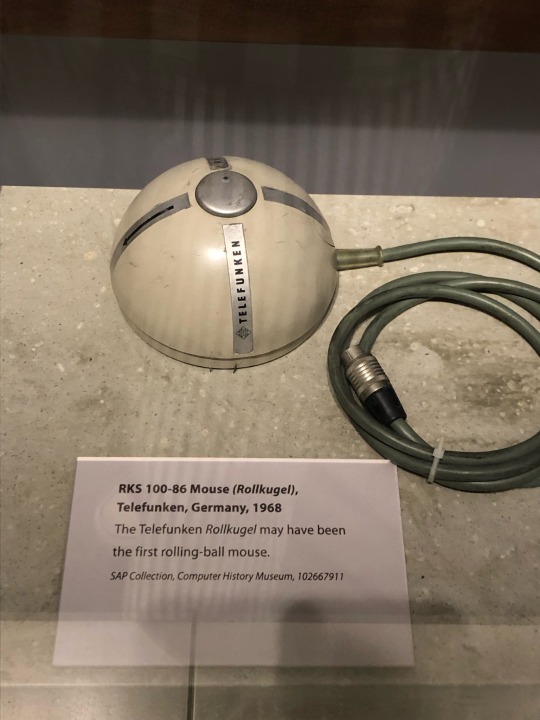
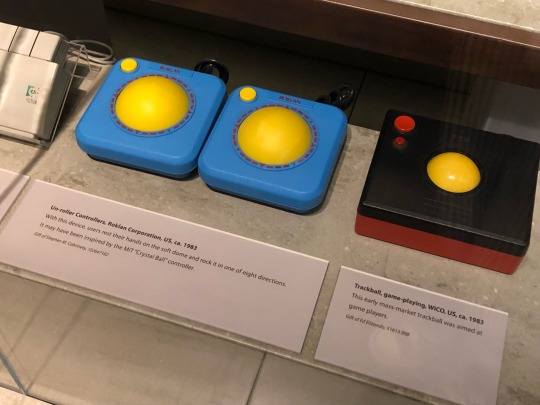
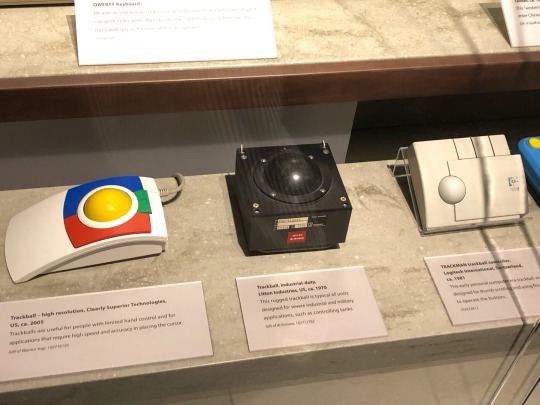
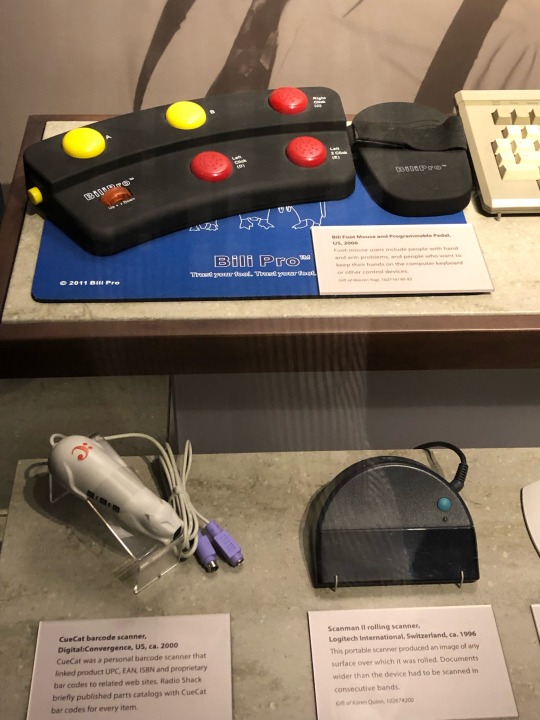

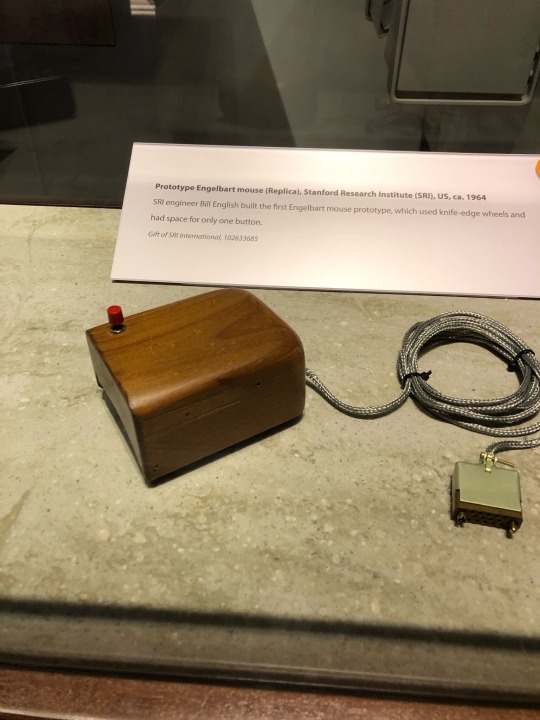
#computer mouse#computer history#chm#design#tech design#mouse design#keyboard#keyboard design#rolling ball#cuecat#scanman#bili pro#trackball#unroller
2K notes
·
View notes
Text
Various Early 1990s PC Wallpapers
With all my digital hoarding, I've been sorting through things to share now and then from the dawn of the internet.
Here's a collection of 18 of the hottest wallpapers from back in the day. Having the coolest desktop background (and screensaver, too) was a serious symbol of how cool you were. When company came over, you would show that shit off like a trophy.

We would often wait for forever to download each one from a BBS (and eventually websites) even though they were usually 640x480 pixels in size or smaller with 256 or less colors...
When 3D computer-generated graphics started becoming a thing, hooooooo, the bandwidth it would eat...
Each one of these below were pretty popular (yes, even the Bart one) and I had applied every one of them to my PC at some point in the past. I remember them fondly!
I've enlarged each one to make them display on modern devices, but I have kept them pixel-sharp to give you the most authentic view. Enjoy!




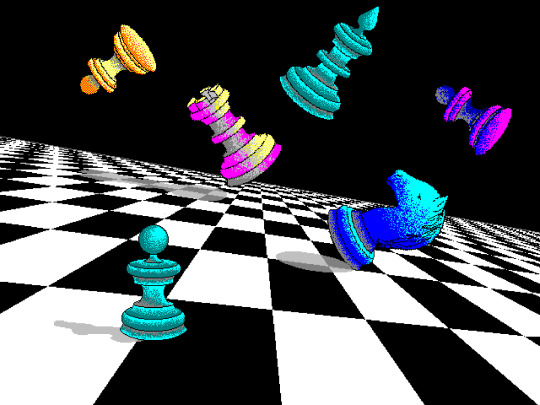






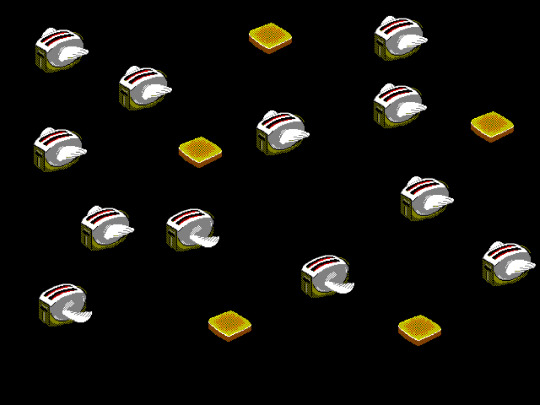




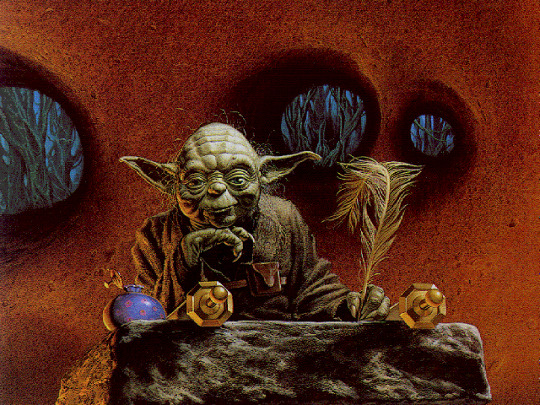
#digital hoarder#digital hoarding#wallpaper#wallpapers#background#backgrounds#retro#retro computing#retro computer#retro pc#windows#classic#pixel art#3d render#computer history#yoda#rare#budweiser#budweiser girls#bart simpson
288 notes
·
View notes
Photo
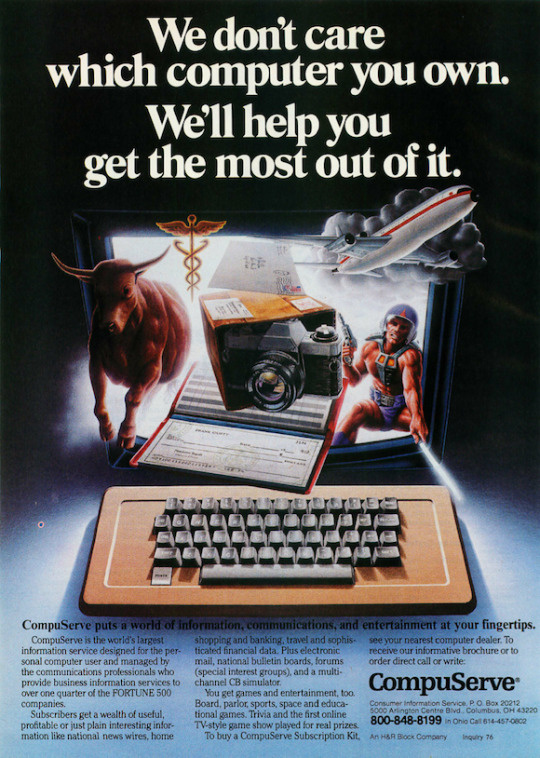
Compuserve was an early, very popular internet service provider for dialup in the 80s and 90s. Most of the customers were early adopters.
188 notes
·
View notes
Text
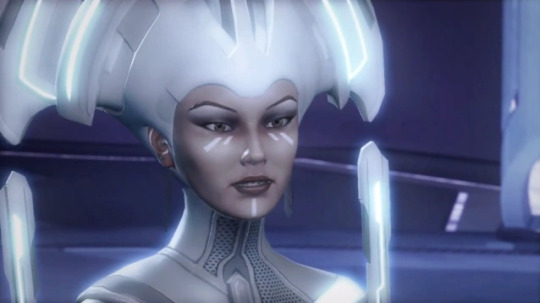
According to the Tron Wiki, the character "Radia" is possibly named after the computer programmer Radia Perlman, whose contributions to network design (that are far too complicated for me as a layperson to understand) has earned her the nickname "Mother of the Internet".

She did once write a short poem about her work, a parody of Joyce Kilmer´s (in)famous poem "Trees":
Algorhyme
I think that I shall never see
A graph more lovely than a tree.
A tree whose crucial property
Is loop-free connectivity.
A tree which must be sure to span
So packets can reach every LAN.
First the root must be selected.
By ID it is elected.
Least cost paths from root are traced.
In the tree these paths are placed.
A mesh is made by folks like me
Then bridges find a spanning tree.
#Tron#Tron Evolution#Radia#Radia Perlman#Computer history#Poetry#If someone can explain her Spanning Tree Protocol in layman's terms I'd be delighted
84 notes
·
View notes
Text
Here are two of the most hilariously scalding letters from the 1800s that I have ever read. One is by the famous writer Lord Byron, and the other is by his daughter Ada Lovelace, the famous mathematician. Both are written to their respective business partners: Byron to his publisher John Murray, and Lovelace to her colleague Charles Babbage. It’s interesting to note how strikingly similar these letters are despite the fact that Ada and her father never knew each other, as her parents separated shortly after her birth and he died abroad when she was eight. Both were rebellious, fond of gambling, prone to tumultuous affairs, and both hated Lady Byron. These similarities may help to explain why her final wish was to be buried next to him instead of her family.
Lord Byron in a Letter to his publisher John Murray about the printing of his magnum opus, the poem Don Juan:
“Ra. August 31st. 1821.
Dear Sir
I have received the Juans – which are printed so carelessly especially the 5th. Canto – as to be disgraceful to me — & not creditable to you.
It really must be gone over again with the Manuscript – the errors are so gross – words added – changed – so as to make cacophony & nonsense. — You have been careless of this poem because some of your Synod don’t approve of it – but I tell you – it will be long before you see any thing half so good as poetry or writing. — Upon what principle have you omitted the note on Bacon & Voltaire? and one of the concluding stanzas sent as an addition? because it ended I suppose – with –
‘And do not link two virtuous souls for life Into that moral Centaur man & wife?’
Now I must say once for all – that I will not permit any human being to take such liberties with my writings – because I am absent. —
I desire the omissions to be replaced (except the stanza on Semiramis) particularly the stanza upon the Turkish marriages – and I request that the whole be carefully gone over with the M.S.S. –
I never saw such stuff as is printed – Gulleyaz – instead of Gulbeyaz &c. Are you aware that Gulbeyaz is a real name – and the other nonsense? – I copied the Cantos out carefully – so that there is no excuse – as the Printer reads or at least prints the M.S.S. of the plays without error. —
If you have no feeling for your own reputation pray have some little for mine. — I have read over the poem carefully – and I tell you it is poetry – Your little envious knot of parson-poets may say what they please — time will show that I am not in this instance mistaken. — Desire my friend Hobhouse to correct the press especially of the last Canto from the Manuscript – as it is – it is enough to drive one out of one’s senses – to see the infernal torture of words from the original. – For instance the line
‘And pair their rhymes as Venus yokes her doves’
Is printed
‘and praise their rhymes &c. –
also ‘precarious’ for ‘precocious’ – and this line. stanza 133.
‘And this strong extreme effect – to tire no longer’
Now do turn to the Manuscript – & see – if I ever made such a line – it is not verse. —
No wonder the poem should fail – (which however it wont you will see) with such things allowed to creep about it. – – Replace what is omitted – – & correct what is so shamefully misprinted, – and let the poem have fair play – – and I fear nothing. — I see in the last two Numbers of the Quarterly – a strong itching to assail me (see the review of the “Etonian”) let it – and see if they shan’t have enough of it. – – I don’t allude to Gifford – who has always been my friend – & whom I do not consider as responsible for the articles written by others. – But if I do not give Mr. Milman – Mr. Southey – & others of the crew something that shall occupy their dream! I am not what I was – that is all
I have not begun with the Quarterers – but let them look to it. – As for Milman (you well know I have not been unfair to his poetry ever) but I have lately had some information of his critical proceedings in the Quarterly which may bring that on him which he will be sorry for. – I happen to know that of him – Which would annihilate him – when he pretends to preach morality – not that he is immoral – because he isn’t – having in early life been once too much so. – And dares he set up for a preacher? let him go and be priest to Cybele. – why let
You will publish the plays – when ready — I am in such a humour about this printing of D.J. so inaccurately – that I must close this.
yrs. [scrawl]
P.S. I presume that you have not lost the stanza to which I allude? it was sent afterwards look over my letters – & find it. The Notes you can’t have lost – you acknowledged them – they included eight or little corrections of Bacon’s mistakes in the apothegms. – And now I ask once more if such liberties taken in a man’s absence – are fair or praise-worthy? – As for you you have no opinions of your own – & never had – but are blown about by the last thing said to you no matter by whom.”
[Separate page]
“Dear Sir
The enclosed letter is written in bad humour – but not without provocation. -
However – let it (that is the bad humour) go for little – but I must request your serious attention to the abuses of the printer which ought never to have been permitted. – You forget that all the fools in London (the chief purchasers of your publications) will condemn in me the stupidity of your printer. — For instance in the Notes to Canto fifth – ‘the Adriatic shore of the Bosphorus – instead of the Asiatic!! – All this may seem little to you – so fine a gentleman with your ministerial connections – but it is serious to me – who am thousands of miles off & have no opportunity of not proving myself the fool yr. printer makes me – except your pleasure & leisure forsooth.
The Gods prosper you — & forgive you, for I wont.
B.”
Ada Lovelace in a letter to her work partner Charles Babbage, who she helped invent the computer with:
“Tuesday Afternoon [1 August 1843] Ockham
. . . Note B has plagued me to death; altho' I have made but little alteration in it. Such alterations as there are however, happen to have been very tiresome & to have demanded minute consideration & very nice adjustments.
It is a very excellent Note.
I wish you were as accurate, & as much to be relied on, as I am myself. You might often save me much trouble, if you were; whereas you in reality add to my trouble not infrequently; and there is at any rate always the anxiety of doubting if you will not get me into a scrape; even when you don't.
By the way, I hope you do not take upon yourself to alter any of my corrections.
I must beg you not. They all have some very sufficient reason. And you have made a pretty mess & confusion in one or two places (which I will show you sometime), where you have ventured in my M.S's, to insert or alter a phrase or word; & have utterly muddled the sense.
I could not conceive at first in one or two places what had happened to my sentences; tho' I soon saw they were patchwork & not my own; and found it so, on referring to the M.S. I fear you will think this a very cross letter. Never mind. I am a good little thing, after all. Yours ever
A. A. L.
Later. P. S. It is impossible to send you anything but Notes B and C; (& this partly owing to some wrong references & blunderations of your own). — Do not be afraid, for I will work like the Devil early tomorrow morning. —“
[Separate Page]
“Wednesday, 4 o'clock [2 August 1843] Ockham
After working almost incessantly, since 7 o'clock this morning, until I am forced to give in from sheer inability to apply longer, I find only the sheet I enclose is quite completed. I shall however send a servant up tomorrow morning by a ten o' clock train, to take you all the rest; so that you will have it almost as soon as this letter.
You cannot conceive the trouble I have had with the trigonometrical Note E. — In fact no one but me, I really believe, would have doggedly stuck to it, as I have been doing, in all wearing minutiae.
I am very uneasy at not hearing from you, as I have expected to do both yesterday & today; & fear some disaster or other. I hope all of Note G is forthcoming; & I also hope you have received all my communications safely.
I think you had better do the second revise of the translation for me. If you will compare it carefully with my first revise, it can hardly be necessary I think for me to go over it again.
I suppose I ought to take it for granted that no news is good news; but I am in a sad fidget. — Yours ever
A. L.”
#‘no wonder the poem should fail’ ‘i fear nothing’#‘i am in such a humour’ ‘the stupidity of your printer’#‘the gods prosper u & forgive u - for i wont’#‘all the fools in london (the chief purchasers of your publications)’#‘i wish u were as accurate and to be relied upon as myself’#‘you in reality add to my trouble not infrequently’#‘they were patchwork & not my own’#literature#english literature#dark academia#poetry#romanticism#lord byron#history#writing#ada lovelace#computer history#computer science history#math history#literary history#letters#funny#1800s#victorian#regency#drama#historical#humour#lit#correspondence
123 notes
·
View notes
Text

Print ad for General Dynamics, detail. National Geographic. May 1959.
Internet Archive
#trypophobia tw#pattern#circuit board#computer history#electronics#advertising#colorful#nemfrog#1959#1950s
443 notes
·
View notes
Text
Fifty-Five Hollywood Online Interactive Kits (Windows 3.1, Hollywood Online, 1994/1995/1996)
You can play them in your browser here.
Edit: my mistake, they're for WIndows 3.1, emulated in DOSBox.
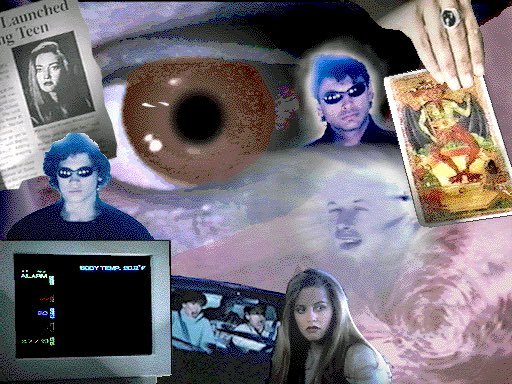
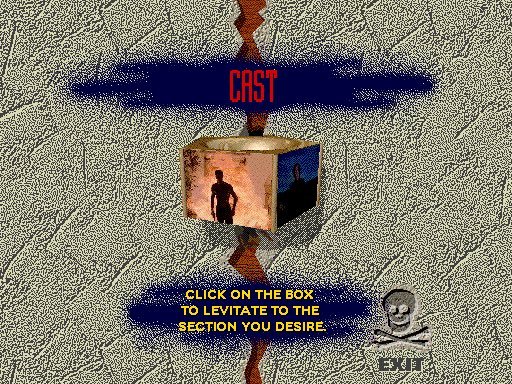

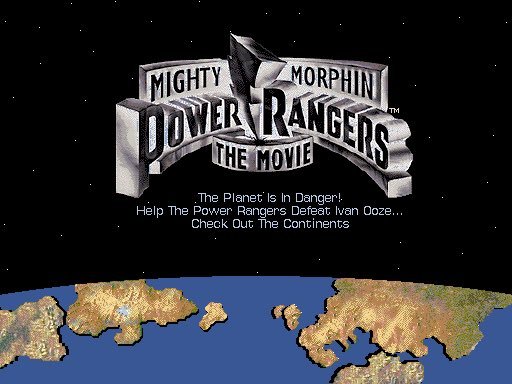
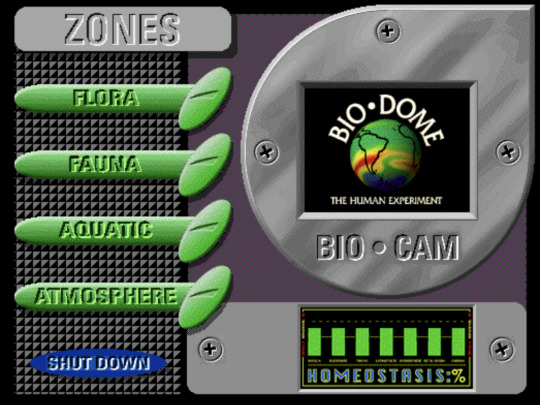
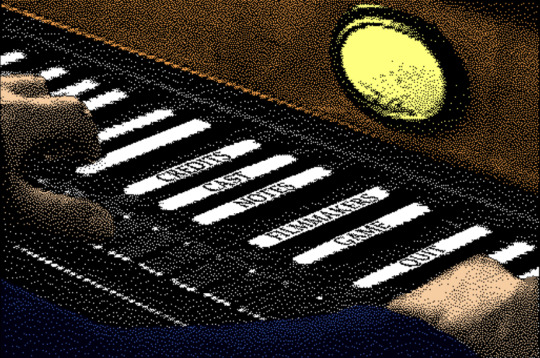
#internet archive#windows 3.1#old software#computer history#computing history#movie#movies#movie history#film history#press kit#multimedia#1994#1995#1996#1990s#90s
166 notes
·
View notes